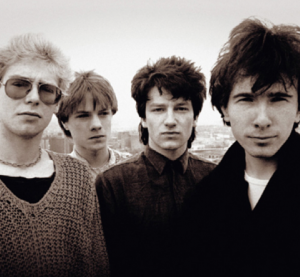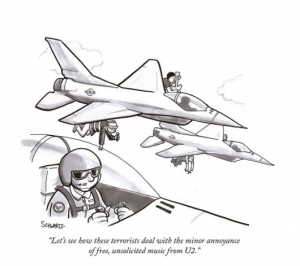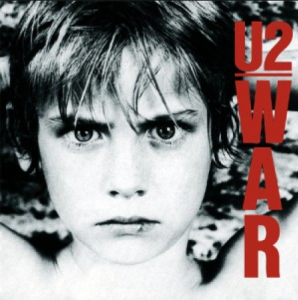I just watched the last 15 minutes of Midnight Cowboy, a movie I have admired for decades and seen a half-dozen times, but which brings me pain each time I watch it. It’s one of those films that I cannot turn away from if I happen to run across it while changing channels, so powerful are the performances and so unflinching is the focus on captivating yet repellent characters.
Dustin Hoffman and Jon Voight are natural, believable and awkwardly honest in their roles (which are among the finest performances of their careers); John Schlesinger‘s direction is unflinching and powerful. Schlesinger was unwilling to turn away from the sorts of intimate, painful moments that other directors tend to cut away from in order to soothe audiences and tie up loose ends. He avoided palliative measures, trusting his audiences to handle the pain and unfairness at the heart of his characters’ worlds and sit with their devastation and disappointment even as the final credits rolled by.
The film begins with what sounds superficially like an upbeat tune with an ambling gait, the song “Everybody’s Talkin‘” sung by Harry Nilsson. The song, which won a Grammy and was a million-selling single in 1969, is deceptive; listen to the lyrics and you’ll see it’s about an overwhelmed man who can’t handle or comprehend the needs and conversations of the people around him and longs to move far away to a place without cares, “somewhere where the weather suits my clothes.” He sings:
Everybody’s talking at me
I don’t hear a word they’re sayin’
Only the echoes of my mind
People stopping, staring
I can’t see their faces
Only the shadows of their eyes
It’s easy for the casual listener to notice only the upbeat qualities of the song and the positive fantasies of the young man as he imagines himself moving lightly through the better life that awaits him:
Banking off of the northeast winds
Sailing on a summer breeze
And skipping over the ocean like a stone
The song suits the story of handsome but none-too-bright young Texan Joe Buck (played by Jon Voight) who leaves Texas in a hurry and moves to New York convinced that he’ll be a big success as a gigolo wearing his cowboy hat, boots and pretty-boy grin, and as he walks around Times Square in his fringed leather jacket he seems to be just a sweet, overgrown, oversexed kid. And he is, at first. Full of hope and confidence but leaving a disturbing and misunderstood past, he soon becomes overwhelmed like the man in the song. He longs to escape his life, first running to New York, then to Florida with his friend Rico (played by Dustin Hoffman). But in this story, there is no easy, rambling way through life or around trouble, and there’s no way for Joe to stop the cascade of horrible lessons that come with being too trusting, hopeful and needy while living among broken, wary people.
Midnight Cowboy is an exceptional film which captures the disturbing power of the fine novel by Leo James Herlihy upon which it’s based. Indeed, the movie, the only X-rated Best Picture Oscar winner ever, was a huge critical success despite its reputation for grim, mature subject matter, and it won Oscars for best picture and best direction. While the story is gritty, it isn’t by any means pornographic; the X rating was misleading. But the story is adult in nature, ultimately cynical, tragic and hopeless. The main characters are hustlers, professional liars at the bottom of society who are not very bright and are willing to take advantage of people in pain. Yet the story is told in such a way that, although we cringe when the principal characters harm themselves and others, we cannot help but feel our own hearts break as we watch their hopes go down in flames.
So why do I come back to this film, and why do I love other devastating Schlesinger films about unrequited love and loss (like his beautiful, faithful adaptation of Thomas Hardy’s Far from the Madding Crowd and the 1971 drama Sunday Bloody Sunday with its exquisite performances by Peter Finch and Glenda Jackson) and of moral decay (like Marathon Man) so much? I suppose it’s because Schlesinger was a masterful storyteller who managed to focus on difficult, broken and fearful people, people on the edges of society, people who are willing to live in shadows. He let us watch them lash out at others in desperation, flail and grasp for meaningful connection with other people, and then have to live with their losses and failures. There are few redemptions in Schlesinger’s stories, but there is great humanity. Schlesinger helped viewers get under the skin of his characters and understand their pain without whitewashing their behaviors or putting them on pedestals. He loved flawed people and stories full of heartache, and he made a career of getting the intelligentsia to peer more closely at and care for stories about the very people those same people might cross the street to avoid in their daily lives.
Schlesinger, who was gay, incorporated homosexual themes into several of his films and teleplays, sometimes portraying gay men as self-loathing (as he did in a disturbing scene in Midnight Cowboy) but also including one of the first depictions of a successful, honorable, well-adjusted professional homosexual man in modern cinema (in Sunday Bloody Sunday). He treated his characters’ sexuality with the same straightforwardness he showed toward their other characteristics; it was simply another facet of their lives. This matter-of-factness, which made Sunday Bloody Sunday particularly advanced for its time, was part of a wave of naturalism in film also seen in the work of other important directors of the sixties and seventies such as Martin Scorsese, Mike Nichols, Tony Richardson, Robert Altman, Francis Ford Coppola, Sidney Lumet and Peter Bogdanovich.
It may seem odd that some human beings (like me) seek out stories of loss, failure and emotional pain like this one both as forms of entertainment and as cathartic experiences. Such films shine a light on the human condition and help viewers like me to understand and empathize with the misbegotten and seemingly cursed people of the world in a way that feels especially visceral and real. Films like Schlesinger’s are, however, at enough of a remove that film lovers who appreciate a good dose of angst with their drama can feel safe sidling up to the misfits, losers and dangerous people who inhabit the underworld that Schlesinger created. There’s a voyeuristic thrill at getting so close to the people and emotions that scare or excite us, followed by a shock when we realize how close they are to ourselves.



